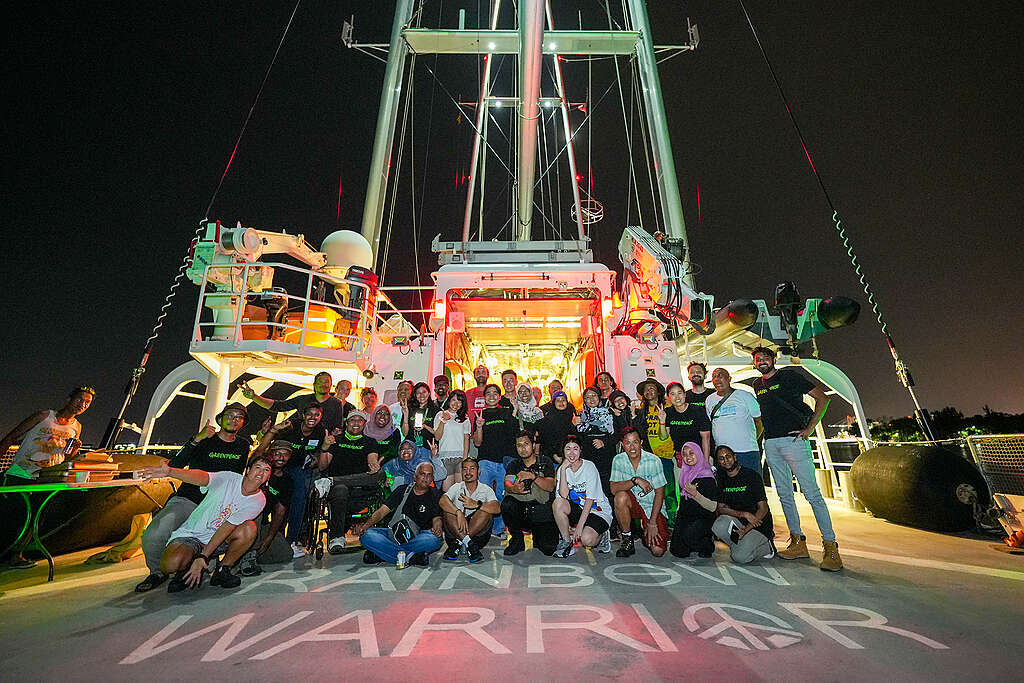About Greenpeace Malaysia
Greenpeace is a movement of people who are passionate about defending the natural world from destruction. Our vision is a greener, healthier and more peaceful planet, one that can sustain life for generations to come.
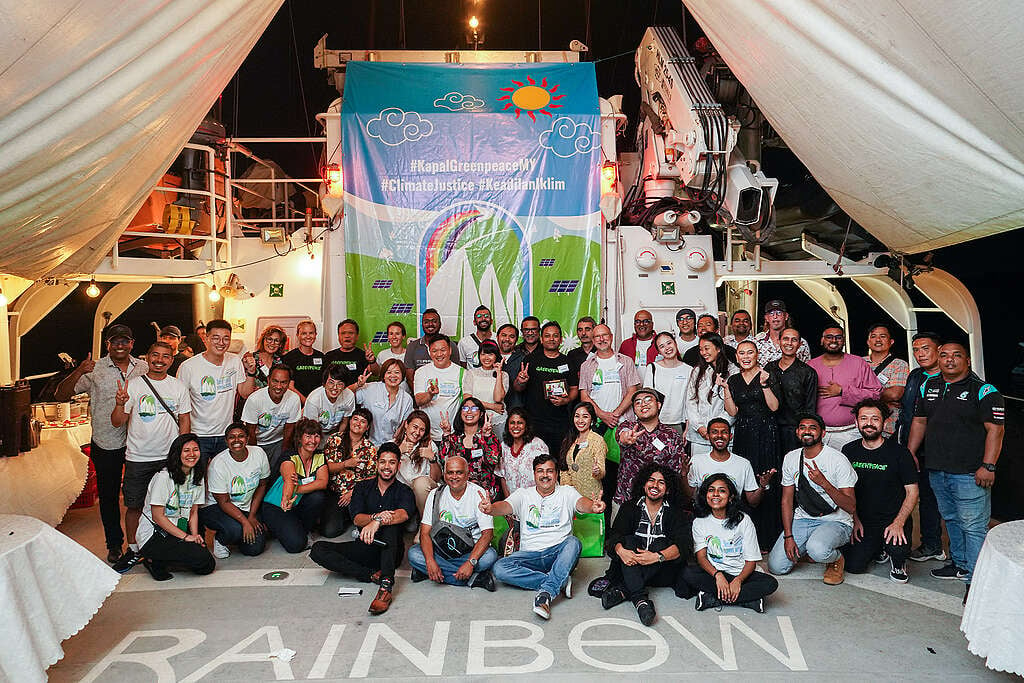
We are independent. We don’t accept any funding from governments, corporations or political parties – our work is funded by ordinary people. That means we are free to confront governments and corporations responsible for the destruction of the natural world and push for real change.
We do this by investigating, documenting and exposing the causes of environmental destruction. We work to bring about change by lobbying, consumer pressure and mobilising members of the general public. And we take peaceful direct action to protect our Earth and promote solutions for a green and peaceful future.
Learn more
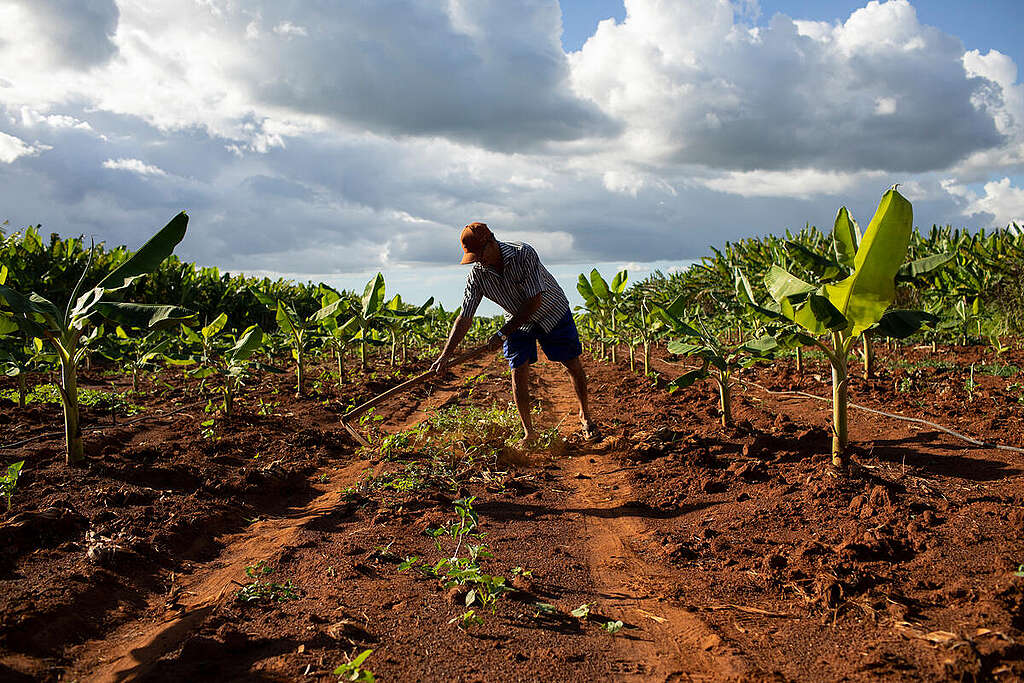
Our Mission
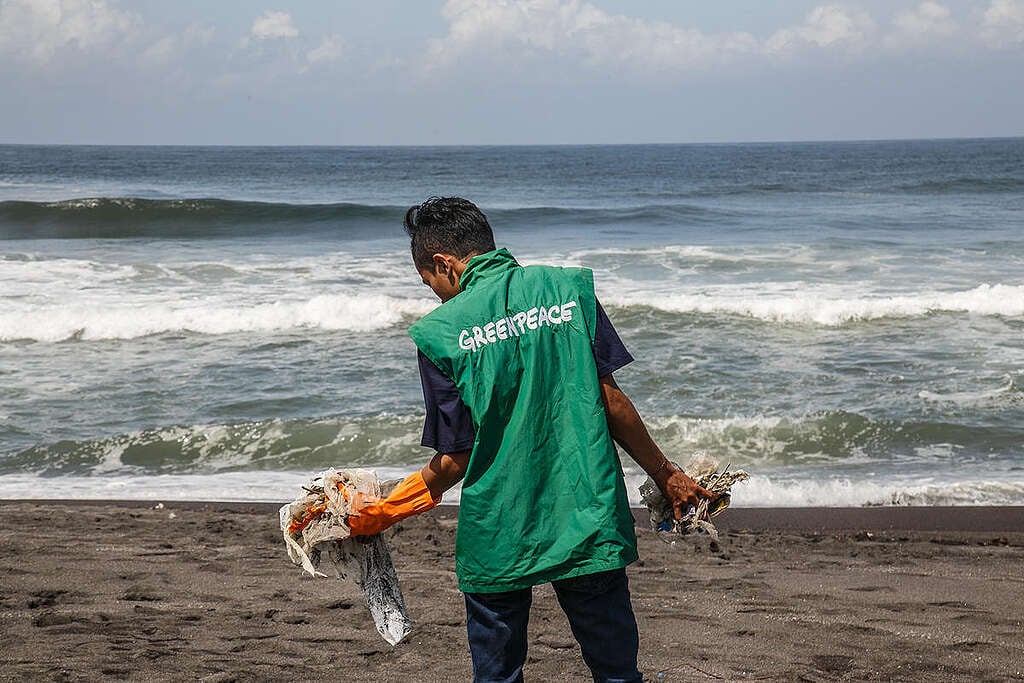
Careers
Greenpeace was founded in 1971 by a small group of concerned individuals, who set sail to Amchitka island off the coast of Alaska to try and stop a US nuclear weapons test. Their old fishing boat was called “The Greenpeace”. Today, Greenpeace is present in over 40 countries around the world. Our movement is growing every day and our commitment to realising our vision is as strong as ever.
We find ourselves at a pivotal point in human history now. Climate change is rapidly accelerating and we are feeling the effects of it ever more – in the changes to our air, sea levels and more extreme weather events. The need to act to protect our planet has never been so urgent, yet governments and corporations are still dragging their feet. Our mission is to promote radical changes and new solutions to the ways we live on this planet so that we can all call it home for generations to come.
The History of Greenpeace Malaysia in Southeast Asia
Since 2000, Greenpeace has been a driving force in protecting Southeast Asia’s environment from climate change, deforestation, and pollution. Through bold campaigns and people-powered actions, we’ve made progress across the Philippines, Thailand, Indonesia, and Malaysia.
Launched in 2017, Greenpeace Malaysia is the fourth office in the region. Despite being the newest, we’ve helped stop illegal plastic waste imports, halted destructive logging, and pushed back against incinerators and coal plants. Our work also champions forest protection and clean, renewable energy.
Backed by two decades of investigations, science, and direct action, we continue to challenge polluters and drive change for a greener, fairer future.
Annual Reports
Greenpeace works to expose environmental abuse and champion solutions that safeguard the future of our planet. Our annual reports share key highlights, strategic milestones, and how your support helps us drive environmental change.
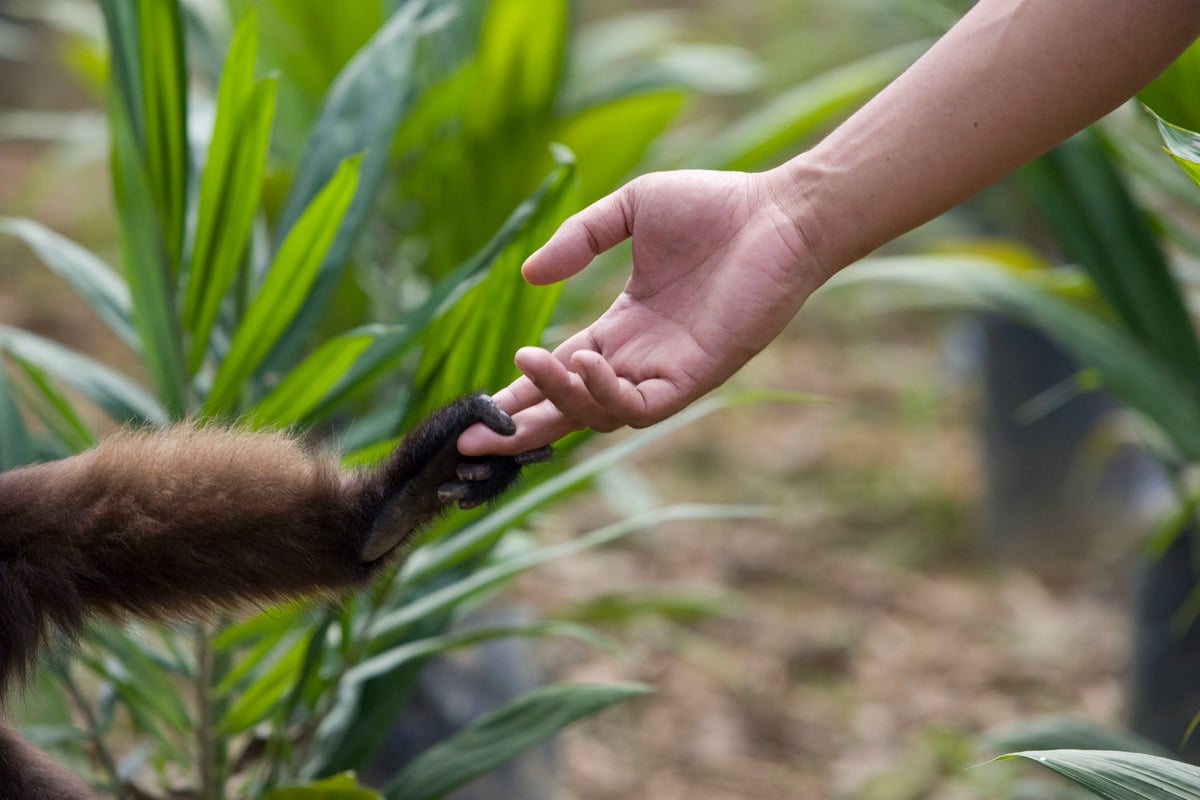
-
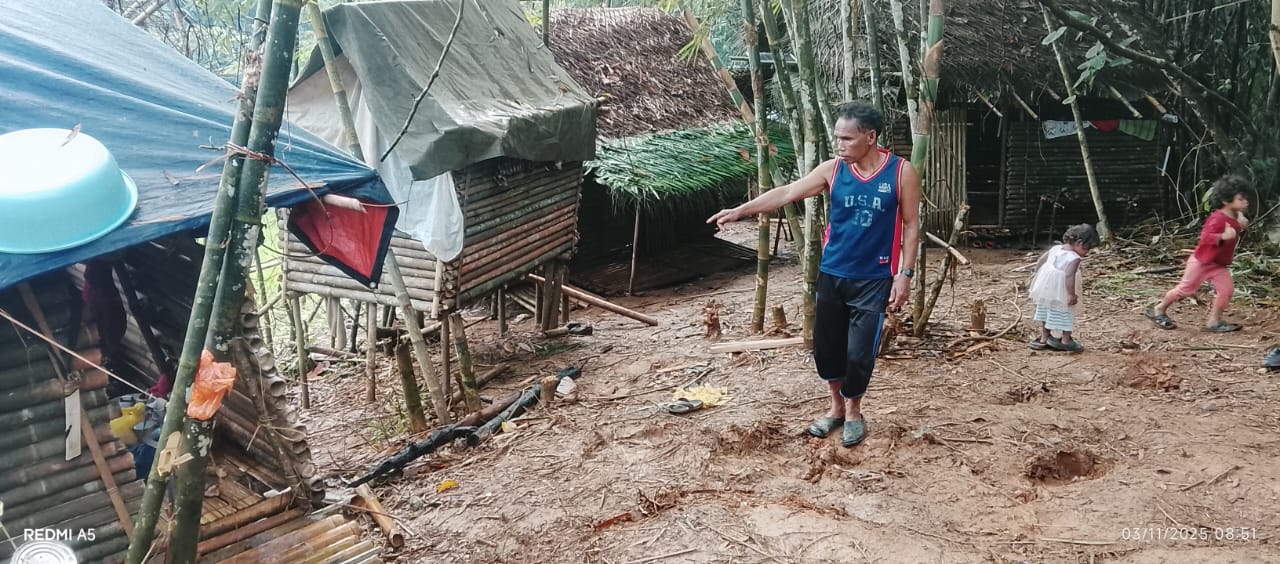
Isu kritikal air bersih di perkampungan Orang Asli, di Gua Musang, Kelantan
Sebahagian besar perkampungan masyarakat Orang Asli di daerah Gua Musang, Kelantan kini berdepan krisis air bersih yang berpanjangan.
-
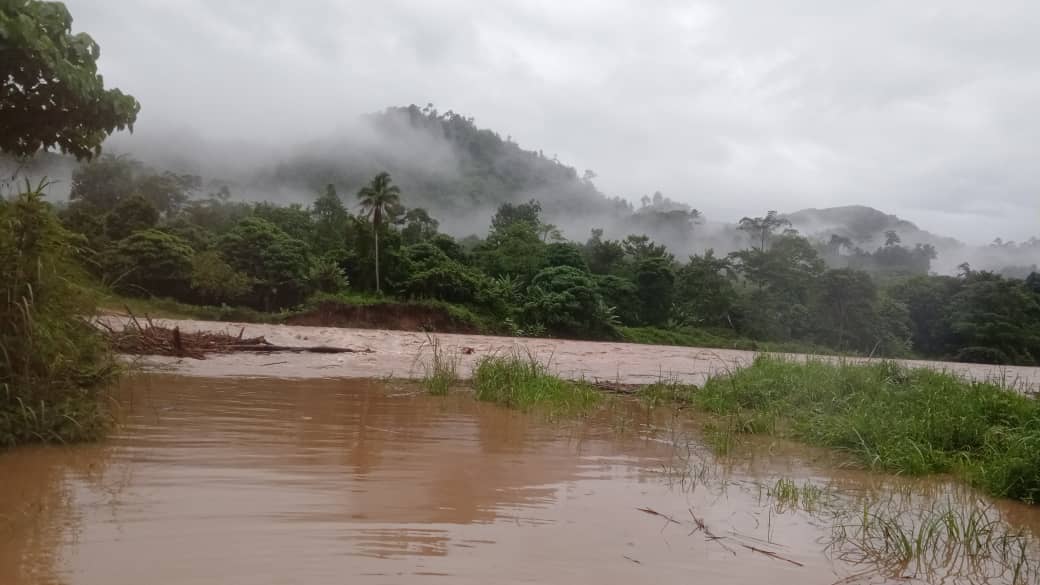
Critical issue of clean water in Gua Musang Orang Asli village
Most Orang Asli villages in the Gua Musang district, Kelantan are currently facing a prolonged clean water crisis. Nearly all villages rely entirely on rivers as their main water source.…
-
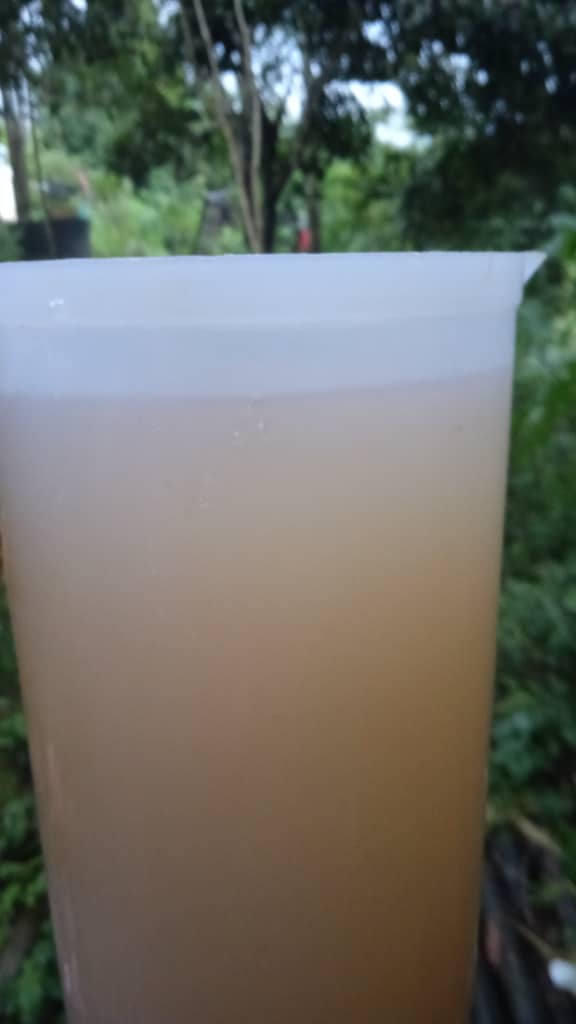
Isu pencemaran air di Kampung Ayong, Pos Pasik, Gua Musang, Kelantan
The Orang Asli community in Kampung Ayong is fully dependent on the rivers as a primary source of drinking water, bathing, cooking, and cleaning. However, recently residents have reported noticeable changes in the quality of the river water.
-
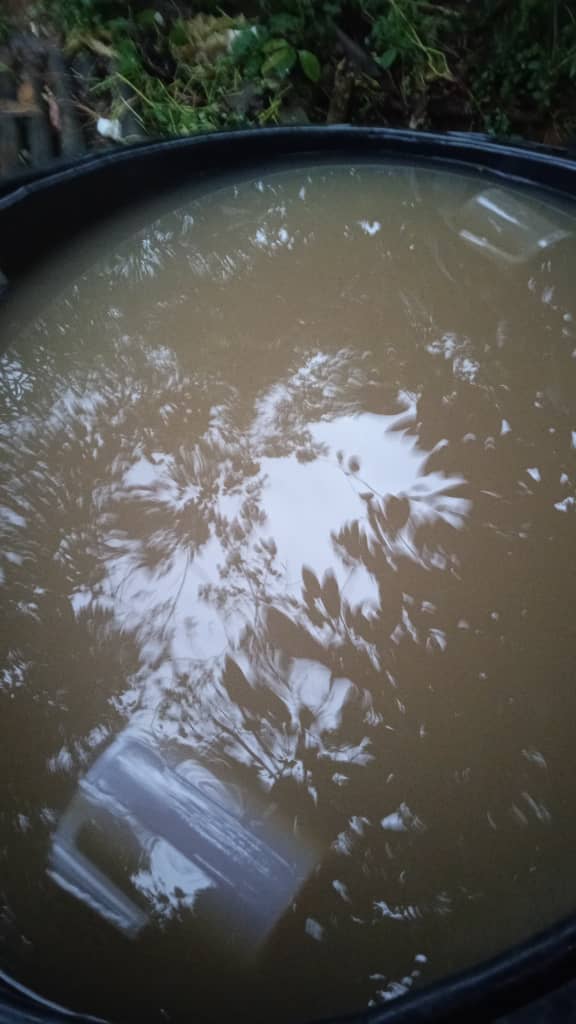
Water pollution crisis in Kampung Ayong, Pos Pasik, Gua Musang, Kelantan
The Orang Asli community in Kampung Ayong is fully dependent on the rivers as a primary source of drinking water, bathing, cooking, and cleaning. However, recently residents have reported noticeable changes in the quality of the river water.
-
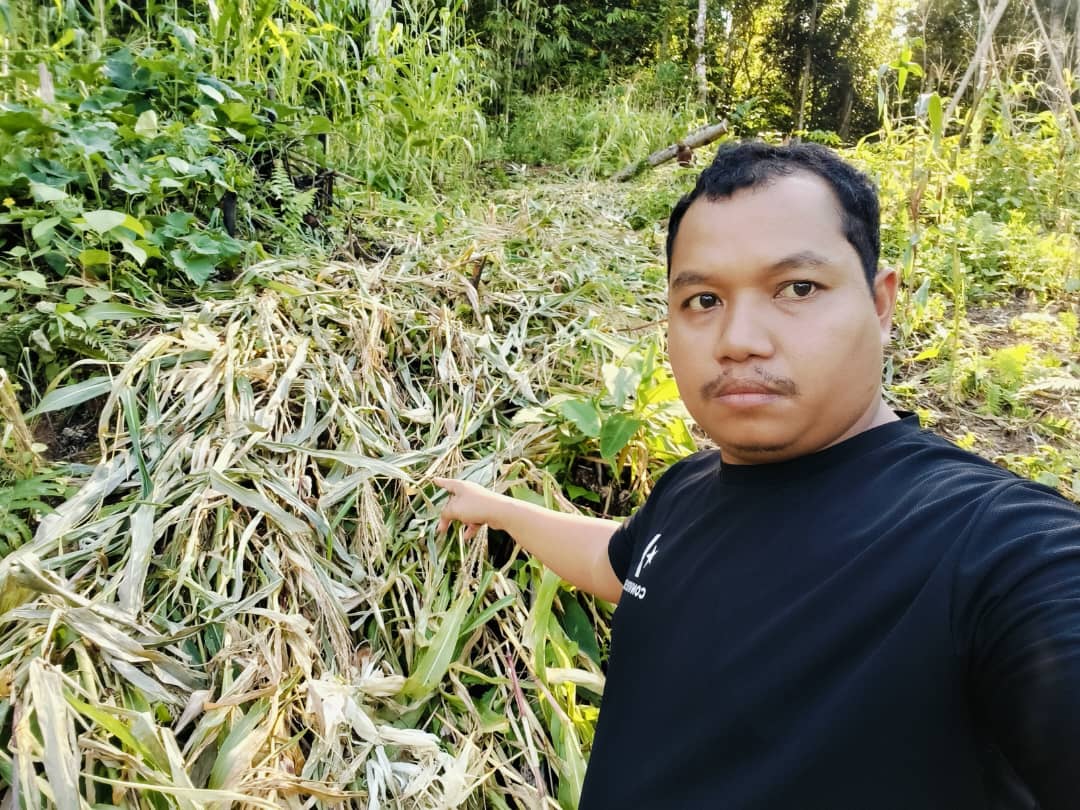
Serangan gajah: Apabila hutan diceroboh, kampung menjadi mangsa
Pada 27 November 2025, banyak peristiwa yang menyayat hati berlaku di Kampung Jader Lama, Pos Simpor di Kelantan. Sekumpulan gajah liar telah menceroboh kawasan tanaman masyarakat Orang Asli dan memusnahkan sumber makanan utama penduduk.
-
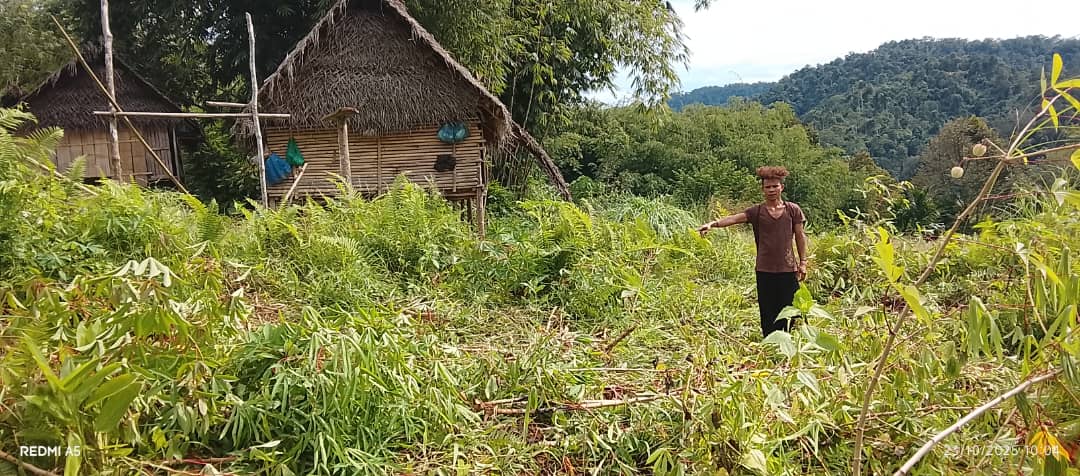
Elephant attacks: When forests are encroached, villages become victims
On 27 November 2025, many heartbreaking incidents occurred in Kampung Jader Lama, Pos Simpor in Kelantan. A group of wild elephants encroached into Orang Asli cultivation areas and destroyed the…
-
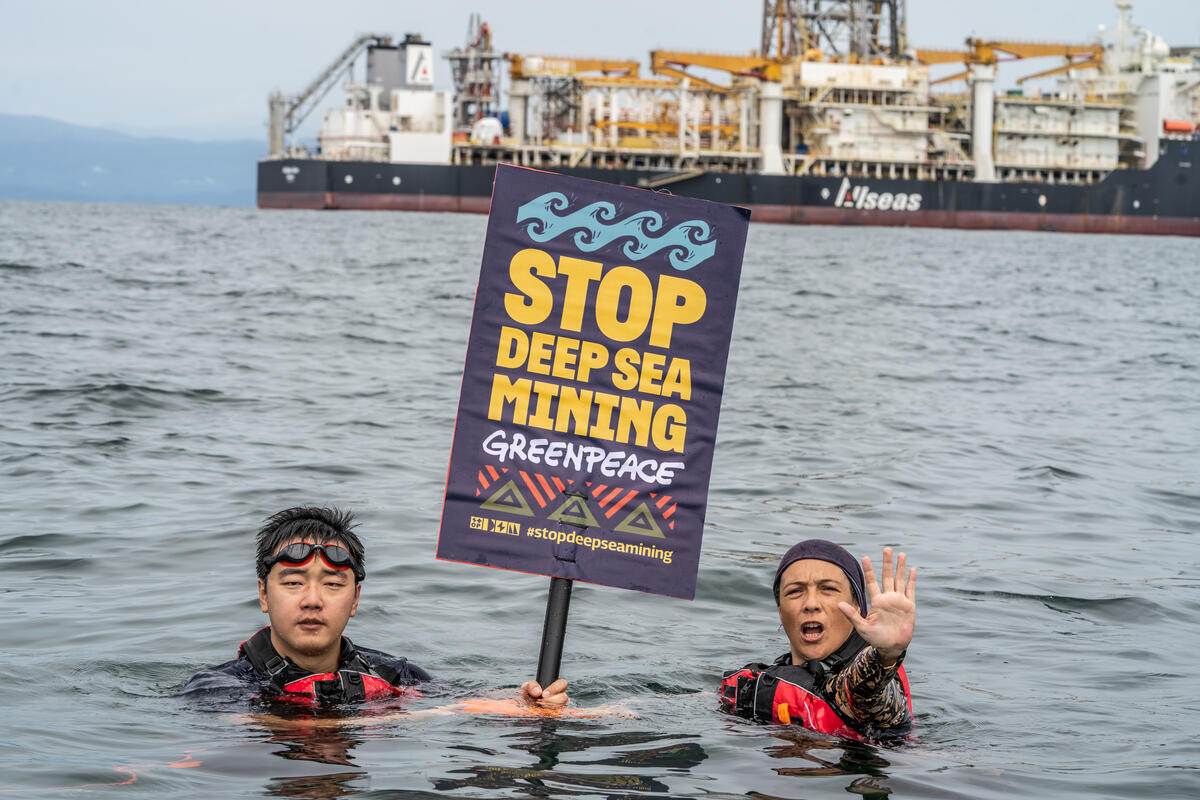
2025 Year Wrapped in Momentum
2025 was a year of steady progress. This is a look back at how people power carried momentum forward for people and planet.
-
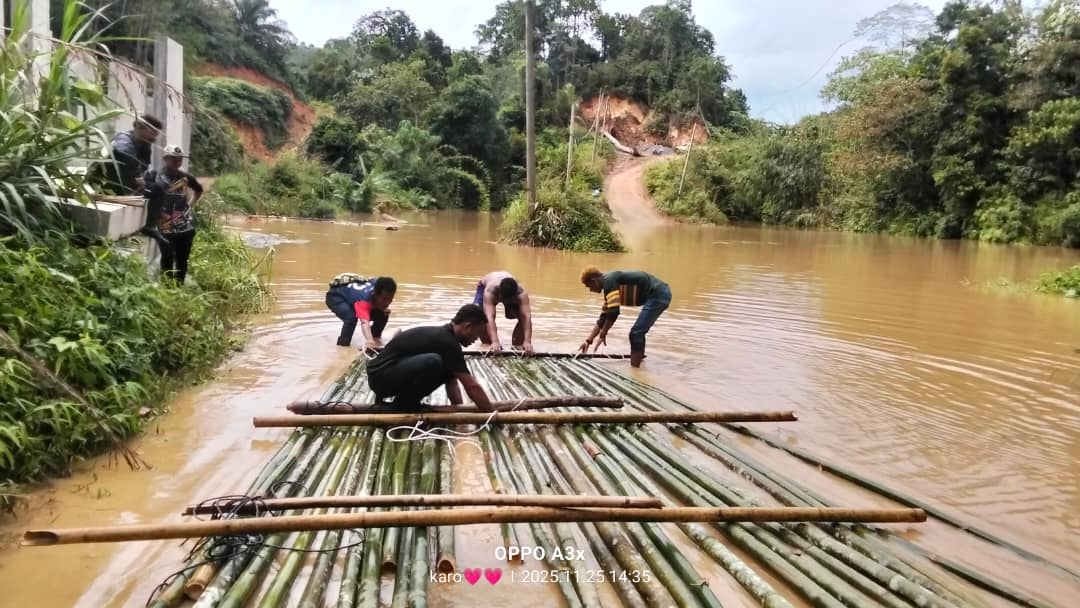
Monsoon seasons and the deep wounds caused by logging
The monsoon season is not foreign to the Orang Asli community. Since long ago, we lived alongside the rain, rivers, and forests. However, what we experienced during the 2025 monsoon…
Subscribe for updates
Together we are part of a growing, global movement determined to bring about the changes our planet desperately needs.

